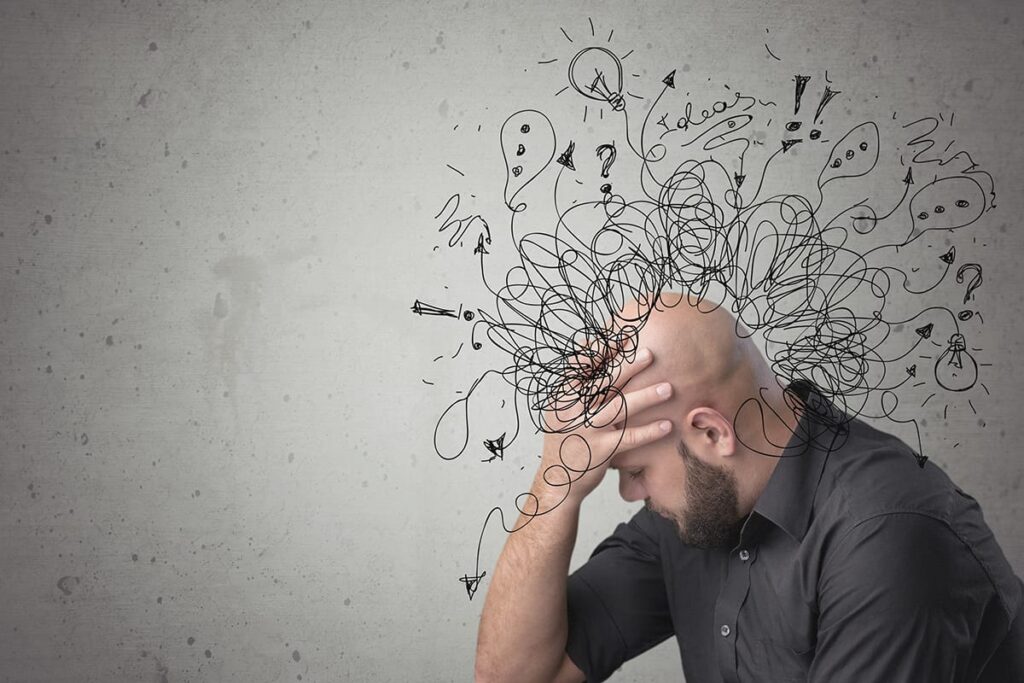USE COUPON CODE “FIRST50” TO GET 50% ON YOUR FIRST SESSION CALL SUPPORT FOR ANY ASSISTANT
15 Minute Free Consultation
What is Adult ADHD?
When we hear ADHD, we imagine restless children who are unable to sit still in class or other social groups. But the truth is that ADHD is not a time-bound disorder. ADHD does not end with childhood. Many adults continue to live with it without ever knowing about it. Research suggests that around 5% of adults have ADHD, yet it remains undiagnosed. At Rebuilding Minds, we provide you the right services and care to help you look after your unnoticed battle disturbing your career, relationship and self-esteem.
ADHD (attention deficit hyperactivity disorder) in adults is different from ADHD in children. In children, the common symptoms include hyperactivity which means constant movement or restlessness. While in adults; the symptoms are more about emotion regulation and inattention.
Common signs include:
- Habit of constant procrastination and incomplete tasks
- Forgetfulness (missing appointments or deadlines)
- Poor organization or messiness
- Mentally or physically agitated
- Impatience, intense emotions or mood swings

Why is it overlooked?
Most of the times Adult ADHD is misunderstood because it does not fit the stereotype of ‘hyperactivity’. In adult ADHD, hyperactivity often reduces and emotional ups and down, inattention, disorganization becomes the prominent symptoms. It is often overlooked because its symptom is mistaken for:
- Stress from daily life struggles.
- Personality traits like being ‘lazy’ and ‘careless’.
- Depression and anxiety (overlapping with ADHD).
These misconceptions are the reasons for unawareness about this underlying condition in adults. It results in blaming themselves silently for it.
How it impacts you?
ADHD does not just disrupt your focus; it also influences all aspect of your life like:
- Workplace challenges: You might miss your deadlines, have poor time management skills and find multitasking difficult.
- Relationships: It can result in interrupting between conversation, or forgetting important dates and struggle in listening fully.
- Daily life: Difficulty in organizing money, unfinished chores and misplaced items.
By the time, these struggles can hamper your day-to-day activity and reduce your confidence in self. It can make you feel ‘not good enough’ even if you have high potential.
Diagnosis in adults
The diagnosis of Adult ADHD is done by a mental health professional on the basis of few psychological assessments in which they will look for:
- History of illness symptoms since childhood.
- Symptom’s consistency across different situations like home school workplace.
- And affect in daily functioning.
- To obtain right diagnosis, a thorough assessment is required because symptoms of ADHD are quite similar to the symptoms of depression, anxiety and other stress-related issues.
Treatment and management
The positive thing about ADHD is that it is manageable with the right care and support:
- Therapy and counselling: The technique used for ADHD is particularly CBT (Cognitive Behavioral Therapy) that helps adults improve their organizations and work on coping skills and emotion management.
- Medication: Medication should only be provided by a psychiatrist. Stimulants and non-stimulants medication can regulate attention and impulsivity.
- Lifestyle strategies: Simple changes in your life can bring out positive results like use of planners, fragmenting big tasks into small ones, setting reminders to do them and regular practice of mindfulness.
At Rebuilding Minds, we offer help to adults suffering with ADHD and help them build these skills and strategies through personalized therapy.
